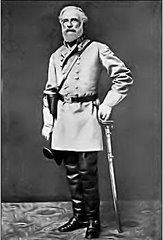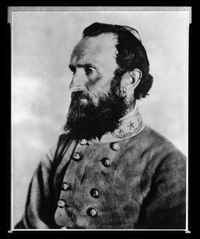We have a messed up view of human nature in our world today. It seems like we cannot get it right. We may put man ahead of God. Or perhaps we believe in a relative morality ideology that in essence teaches us that man is not sinful, because there is no real right or wrong. Perhaps we believe that man can make it on his own, and that he does not need others to survive.
There are all sorts of different ways to look at the nature of man, and it seems we just have not been able to tie it together in a Biblical way that is self-evidently true. One great example of an ideology on the nature of man is the Enlightenment.
The Enlightenment taught a very radical view that the human mind is the end to all things. We can achieve personal happiness, satisfaction, knowledge, etc. through the human mind. This was a rejection to the Christian faith which teaches that God is the end to all things and that our chief end is to glorify Him and enjoy Him forever.
One thing this did, which became as much of a political notion as religious, was reject the idea of the modern Roman Catholic Church and its teachings. It taught that our satisfaction and knowledge can be found within our own minds, not through the teachings of the Pope, Bishop, or through acts such as confession of sin, penance, etc. The ideas of individualism, relativism, etc., became the popular ideologies. These ideas along with the idea of utter separation of Church and State (which had been a problem) greatly influenced the political thought. Enlightenment thinking did somewhat influence our American Revolution and early basic American government.
Then came the Protestant Reformation. This was sort of the spiritual Enlightenment. The Protestant Reformation in many respects was a completely opposite approach to the Enlightenment. Yet it too had very radical beliefs that whether intentionally or unintentionally influenced political thought. Our Founders themselves were greatly influenced by the Protestant Reformation. How did two opposing forces join together in the American Revolution, and what does this say about human nature anyway?
Although these were two different viewpoints, let us look at some similarities these had. They both at some level rejected the Roman Catholic Church at that time. They both sought after religious freedom and separation of Church and State. They both believed one can obtain some sort of individual satisfaction apart from any Pope or Bishop. Similarly, they both rejected the notion that works in the Church buys something eternal (i.e. forgiveness of sin, less time in a purgatory, salvation, etc.). There was much common ground even in these completely different worldviews, which help build a structure for the American cause for independence.
Today we have drifted so far. We do not write with the same passion our Founding Father’s wrote. Modern-day self-acclaimed intellectuals are hardly the philosophers of the Enlightenment, and few theologians write with the same faith and piety that people like Luther or Calvin had. As a result, our politicians do not speak with the same zeal, passion, or intellect our Founding Fathers had. How many politicians do you hear saying “Give me liberty or give me death!?”
But even yet, we can still see remains of each worldview. The Protestant Reformation was probably one of the closest movements we have had that lead to a good understanding of human nature, and the American Revolution also ranks pretty high (which had much inspiration from the Reformation). Although I believe the church broke apart from Rome for good reason, I do believe many Protestants over-state some of the great reformers points to a point of misunderstanding human nature. Although salvation is offered by Christ on an individual basis, and not through works, Popes, etc., it is immature to consider ourselves “individualist” Christians. Although our salvation has its root in a personal relationship with Jesus, it is actually prideful to believe we can exercise this relationship just as well individually as we can corporately.
Another thing we do today too often is actually degrade our human nature. While we should not think in the anti-religious way the Enlightenment thinkers did, there is actually some real truth we can find in their ideologies. It is certainly true we should not give ourselves credit for any glory, but we must remember that mankind was made in glory. Man was created in the Image of God, and had ruler of the rest of God’s creation. Man will one day reign with God, and will even be higher than the angels.
Sometimes Protestants in America focus so much on the sinfulness of man that they forget about who man was before the Fall, and who man will be in Final Resurrection glory. It is the church, which is comprised of real human beings, that is the Bride of Jesus Christ Who is God Himself. Whenever the Church tries reaching out to non-Christians, we must be balanced in our approach to teaching the sinfulness of man, and showing the glories God has in store for His People. Far too often we teach a woe is me attitude and forget that man really does have dominion over all other animals, and will one day even be above the angels in perfect communion with God.
This false idea of human nature affects our worship, evangelism, political ideology, and frankly, our whole way of life.
Although there was error in some of the ideas of the Founders of this nation, there is much we can learn from them in regards to human nature. They understood that man stands out in creation. They understood that man has the ability to overthrow false government and create new government, and that salvation is not found at the hands of a king or Pope. They put a high emphasis on the human mind. They understood that we have a Creator Who gave us certain Rights on an equal and individual basis. However they did this realizing the sinfulness of man, thus creating a government for the purpose of punishing those who take away our God-given Rights.
In worship, our churches are often either so joyful they forget to be somber and take part in confession
or they forget about the joyful practices such as the Lord’s Supper. The Lord’s Supper is a real meal with God, which foreshadows our Final Resurrection glory which is to come.
I believe that Psalm 8:3-8 explains this paradox well. It reads, “When I consider Your heavens, the work of Your fingers, the moon and the stars, which You have ordained, what is man that You are mindful of him, and the Son of Man that You visit him. For you have made him a little lower than the
angels, and you have crowned him with glory and honor. You have made him to have dominion over the works of Your hands;You have put all things under his feet, all sheep and oxen – even the beasts of the
field, and birds of the air, and the fish of the sea that pass through the paths of the seas.” The only thing I can add to this, is that if we are in this life “a little lower than the angels,” we will be all the more higher in Final Resurrection glory.
The true identity of mankind and mans true nature is only found in a Christian worldview. However it is also self-evident, to quote from the Declaration of Independence. Therefore in a broader sense, this simply makes the Christian worldview itself at large self-evident. It becomes the only worldview that explains human nature in a manner that is consistent with everything we see around us.
The underlying explanation to man’s nature is this: Man is created in the Image of God. Every person bears God’s Image in some way, whether Christian or non-Christian. However this is more than just a
statement. This is also a command. Don’t be non-human. Be human. Live for God and live for others. Live in a faithful manner, a loving manner, and a hopeful manner, all done by the Trinity Himself.
Therefore I encourage every Christian reading this who does not go to church, to find a Church if in any way possible. I say this not because your salvation is reached by a Pastor or by a ritual, but because the routines done in a Trinitarian corporate worship service and the people you meet at a Godly church helps you reach the fullness of your salvation. It is non-human to have no community. It is non-human to believe you can reach God and experience Him fully without the company of others. Even God Himself is a company of three persons. When God created Adam, he said “It is not good for man to be alone.” And after He formed Eve, He gave them children. Community was formed by God.
And if you are a non-Christian, I encourage you to look at the many questions of the world around you and ask yourselves what other worldview can answer these questions. When I look at simply the nature of man itself, the only logical and consistent answer I find is that man is created in the Image of God. From where else do we obtain the kind of community we need? Where else do we become moral, conscience, aware, loving, personal, etc. people? Being in the Image of God is both a statement and a command. So in short, I command you to live in the Image of God.
What do you think?
God bless America
Pray for our Troops
God bless His Church
November 19, 2008
Ryan Hampton
Thursday, November 20, 2008
Subscribe to:
Post Comments (Atom)










No comments:
Post a Comment